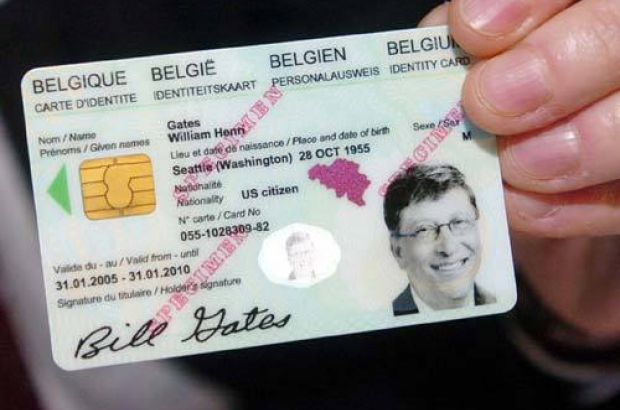- Daily & Weekly newsletters
- Buy & download The Bulletin
- Comment on our articles
Identity cards: Are you Belgian or are you special?
If you’ve moved to Belgium to work for a European or international organisation, such as the European Commission, Nato, or a non-governmental organisation (NGO), then you’ve got a choice to make — will you be Belgian or will you be “special”?
Of course, this question is in reference to the type of identity card you will register for when you arrive in Belgium’s borders. (After all, few of us will ever truly be Belgian, and we’re all special, aren’t we?)
Belgian law dictates that if you’re coming to live and work in Belgium, you must register as a resident and possess a valid identity card that you carry on you at all times. However, if you’re working for a European or international organisation, then you have two options as far as residency goes: you can go ahead and register as a full Belgian resident or you can apply for 'simplified residence' and receive what is called the 'special' identity card.
Both cards offer a few advantages, but also carry a handful of disadvantages.
The perks of being special
The main advantages of choosing the special identity card (and thereby the status of simplified residency) are ones of ease, efficiency and economics.
Firstly, special identity cards require less footwork from you. You apply and submit the forms through your employer, who gets you on a population register, thus relieving you of the need to visit your local commune. So no struggle with local authorities, no endless queues, no battle making yourself understood in a local language.
Second, along with the simplified residence status come some very attractive tax benefits. With the special status, you are exempt from paying national taxes, except property and local service taxes, which those holding a Belgian ID must pay. That could save you a significant chunk of money every year.
Not for everyone
However, there are some important disadvantages to taking the special card. The biggest one is that with simplified residency, your time in Belgium doesn’t count towards time as a resident. So if you leave your job, you lose your residency permit as well. Plus, unlike Belgian residency, the amount of time accumulated in the country doesn’t grant you rights to stay, nor will it count in the five to 10 years you must be a resident before you can apply for citizenship.
This applies to family members as well. Accompanying spouses and children are eligible to receive the special identity card. These too can be applied for through your employer. However, when your children reach an age where they are no longer your dependents, they will have to return their special identity card and apply for full Belgian residence if they intend to live and work in Belgium.
Furthermore, spouses who want to carry out professional activities in Belgium, or be self-employed, may not hold the special identity card, as they cannot have a VAT number. Working spouses will have to apply for a Belgian residence permit with the local commune, and, if not an EU national, a work permit as well. Luckily, as a family member of a civil servant, these are generally issued unconditionally.
Making the choice
In the end, which ID you should hold is largely determined by your plans in Belgium. If you’re here for a four-year stint and you have no intention of staying longer, then the special ID might be better for you – you’ll avoid much of the footwork and frustrations of dealing with the commune and you’ll have some pretty nice tax advantages to boot.
If you think that Belgium is somewhere you might stick around for a while, settle or buy property, or if you are a spouse who wants to work and be eligible to benefit from his or her social security contributions, then Belgian residency might be your better bet.
Also, if you think you might want to one day to apply to become a Belgian citizen (especially if you aren’t a national of an EU country), then the Belgian residency may be the wiser choice, as the time you live in Belgium holding a special ID does not count towards years of residency when applying for citizenship.















Comments
Tax advantages? Really?
Another important difference between "special" and normal ID cards is that - for travel within the EU, at least - normal Belgian ID cards are accepted as travel documents whereas the "special" ID cards are not.